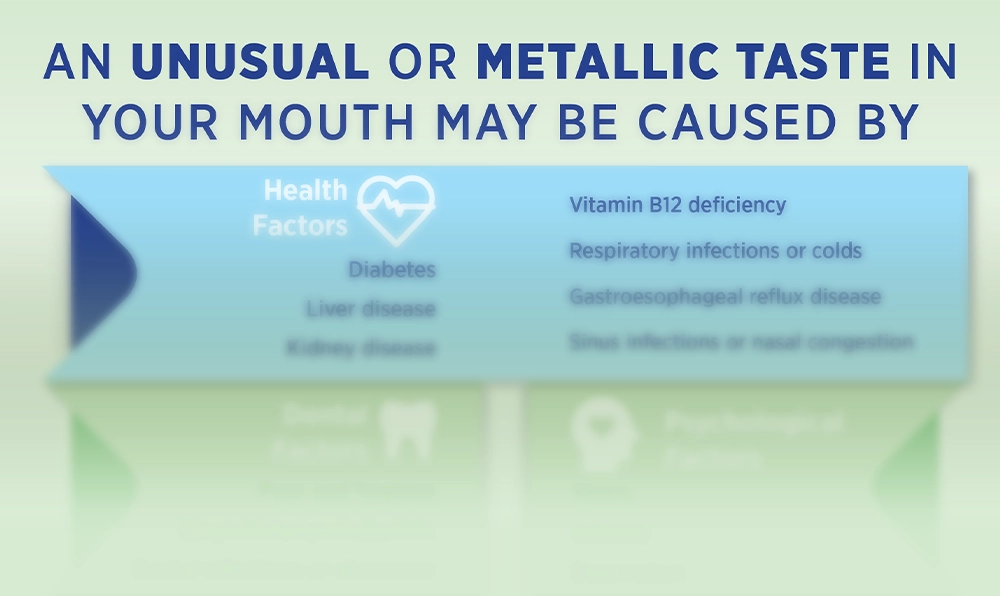


Experiencing an odd, lingering metallic taste can transform your day-to-day life in more ways than you might imagine. This unanticipated change in your taste buds can affect your eating habits, your enjoyment of food, and even your emotional well-being. Let’s explore the impact of this taste disturbance and how you can manage it effectively.
First off, what exactly is this metallic taste? Known in medical terms as dysgeusia, it’s a taste disorder where a persistent metal-like taste lingers in your mouth. This unpleasant sensation can stem from various causes – from minor health issues like a cold or sinusitis to more serious conditions such as medication side effects, chemotherapy, or neurological disorders.
Living with a constant metallic taste can be more challenging than it sounds. Imagine every meal, every drink leaving a bitter, metallic aftertaste. This sensation can rob you of the joy of eating, leading to loss of appetite and unintentional weight loss.
Besides physical health implications, the persistent unusual taste can also cause distress, and anxiety, and impact your social life.
One often overlooked impact of metallic taste on daily life is the emotional strain it can cause. Food is not just sustenance; it’s also associated with pleasure, comfort, and social bonding. A distorted taste can make meal times stressful, leading to feelings of frustration and depression.
Moreover, your social life might also take a hit. Imagine having to refuse your favorite foods at a dinner party or being anxious about an impending metallic aftertaste during a date at a fancy restaurant. These challenges can put unnecessary strain on your relationships and social interactions.
While the impact of a metallic taste on daily life can be significant, the good news is, it’s manageable. One effective way is using specially formulated oral rinses. These products work by neutralizing the metallic taste and refreshing your palate.
Regular usage of oral rinses, as directed by a healthcare provider, can alleviate taste distortion. Besides using oral rinses, maintaining good oral hygiene, staying well-hydrated, and incorporating more fruits and vegetables into your diet can also aid in reducing the metallic taste.
Check Out: What Is A Food Allergy?
Remember, the journey of overcoming the metallic taste is unique to each individual. But with patience, the right oral rinse, and lifestyle adjustments, you can start to reclaim the joy of your meals and the normalcy of your daily life.
Understanding the impact of metallic taste on daily life is the first step towards managing it effectively. So, keep exploring, keep trying, and remember that you’re not alone on this journey.
